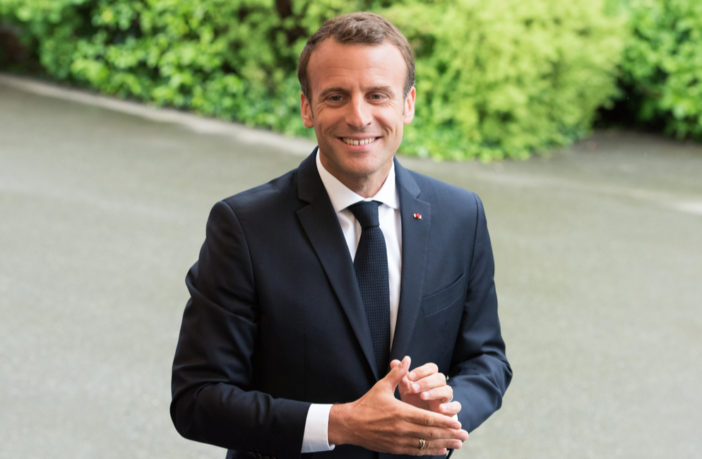Emmanuel Macron, the president of France, came to power in 2017 in the wake of the election of Donald Trump in the US and the Brexit referendum – widely seen as a period of crisis that pitted populism against liberal democracy.
At the time, Macron presented himself as a defender of liberalism against the dangers of populism. During his confrontational TV debate with Marine Le Pen, he described the democratic processes of the European Union as protection against populism.
And indeed, both left-wing populist Jean-Luc Mélenchon and right-wing populist Marine Le Pen attracted significant support in the 2017 election. Their votes often came at the expense of the traditional governing parties – the centre-left French Socialist party and the centre-right Les Républicains (the Republicans).
It’s clear that Macron strongly opposes the ideologies that are typically associated with populism today. The word “populism”, however, has become a useful tool for liberals. It can be deployed to automatically disqualify any ideologies that challenge the fundamentals of liberalism. Macron can argue that he couldn’t possibly be a “populist” himself since he is defined by his opposition to it.
But rather than describing a particular ideological content – a stable set of political ideas such as communism, liberalism or fascism – many feel the word “populism” refers to a particular political logic. It is an approach that separates people into “us” and “them”. “Us” refers to the people inside the populist movement, while “them” typically refers to established elites.
Look a little closer and it becomes clear that Macron’s successes are based on the same approach. He has opened a radical new political frontier by calling for a “revolution” against the established elites. His campaign book, itself titled Révolution,, stated: “The real cleavage today is between backward-looking conservatives…and reformist progressives…”. Among the backward-looking conservatives, Macron includes both the established governing parties and the far right and far left. The former represents the “ancient order” and old ways of working and the latter are obstacles to embracing the modernity of globalisation and the European Union.
Fuelling division
We studied Macron’s particular brand of populism in some detail and have found that he has somehow managed to aggregate the unsatisfied demands of many groups into one movement. He offers something for everyone, from people who prioritise environmental issues to immigrants. Macron crafts his speeches to cater to the emotions and demands of the public, be it through ramping up the rhetoric on climate change or pushing for further European Union integration – whether or not he actually has the policies to match his words.
Macron has, for instance, appointed Nicolas Hulot as minister of ecology, sustainable development and energy. Hulot is probably the most famous public figure associated with environmentalism in France so Macron is sending a message that he is serious about green issues. Yet has also brought in pro-market and centre-right figures, such as Bruno Le Maire, the minister of economy and finance. This suggests Macron thinks he can combine environmentalism and pro-market policies.
Our purpose in characterising Macron as a populist is not to discredit him – as tends to be what is implied when most people use the word “populist”. Instead, we believe that opening our eyes to Macron’s populist strategy helps us to challenge received wisdom on contemporary populism. It challenges the notion that liberals have a moral high ground when it comes to who is and isn’t labelled a populist.
This is important because the moral disqualification of some political actors has only made contemporary polarisation worse. Those who are unhappy with growing inequalities are necessarily seen as illiberal, immoral or racist. Macron appears to be acting against all received wisdom on populism, by fuelling the dangerous polarisation between progressives and the far right. He is doing what Marine Le Pen does – lumping together the traditional parties of the centre left and right in her rhetoric, as though they are one interchangeable elite mass that has betrayed the people.
But he has taken it a step further by establishing a new centrist liberal party that claims to be both centre right and centre left. He has in fact created the very homogeneous lump Le Pen decries in her fantasy of a “political establishment”. Under Macron’s reality, one centrist party is all the establishment there is. It is the ultimate “us” and “them” division.
The results of this approach were evident in the 2019 European elections. Voters only had two real options – Macron’s party or Le Pen’s. Instead of fighting populism, Macron seems to be reinforcing populism by bolstering the liberal-illiberal polarisation of the French political space around two populist alternatives.![]()
Charles Barthold, Lecturer in People Management, The Open University and Martin Fougère, Associate Professor in Management and Politics, Hanken School of Economics
This article is republished from The Conversation under a Creative Commons license. Read the original article.



